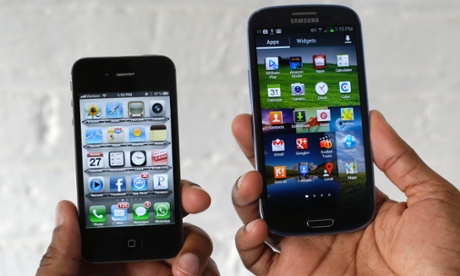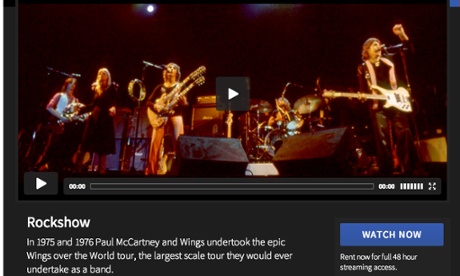Has new and digital media had an impact upon ownership and
control of the media institution(s) involved in your case study area? Explain in detail any impact and what exactly
has changed.
Music companies have control and ownership of the different
types of song and music video’s being aired and shown on social media sites and
on television as well. They have the control of the showing music videos to the
audience. For example, the big music company, Warner who are a popular and well
known music company who distributed music and has many music artists within the
label , they have partner up with YouTube to distributed their music artists
video to be seen more on the popular video sharing site, they have partner up
with YouTube to distributed their music artists video to be seen more on the popular
video sharing site YouTube, this is very good as they would as the sites is
used by million and what they have done is by placing these videos as a advert
on the, this is very good as they would as the sites is used by million and
what they have done is by placing these videos as a advert on the YouTube
sites, just before you watch your chosen video, which is very good and benefits
the music company, as they can generate a lot of money by advertisement and
views from the music artist video. As YouTube is partnered up with popular
video sharing sites, VEVO, as they specialise in just focus on the music
artists, by showing only their music videos and giving the audience some
information on the many concerts/gigs
they might have and the information about the artist as well. As Music Company have in the past have teamed
up and partner up with many music channel and distributed and institution like
Kiss 100, MTV and many more to show a certain amount of music artist videos on
their channel .to help advertise and promote their song to the audience, as
they only want the audience to listen and watch their music artist to become a
fan.
Popular videos sharing sites like
·
YouTube
·
Vemeo
·
VEVO
What impact has there been on the way in which the audience
now consume the media products/ texts involved in your case study? How does it differ from what went
before? Consider (SHEP)
Due to this technology, people are downloading music for
free, as the use of piracy has rapidly improved over the last ten years, as
it’s available and easy to access to everyone.
This has now created a moral panic, as some will feel that this is the wrong
action and that people should be paying for their music on ITunes and other
payable site for music. Also, they should be supporting the artist by going
concerts and buying their merchandise. This means that no one make any money
music. As the ‘Music labels feel the music pirating pain’, as ‘Downloads keep
going up … Music giants lose fortune in 1.2bn song thefts’. But on the other
hand, a pluralist will feel that the audience has the right to do whatever they
like as the internet allows these things to happen, there’s no regulation or
any censorship saying no to anyone who access these sites like Stotify. The audience wouldn't mind as long if the
music is free to listen and free to watch on these video sharing sites.
What impact has there been on how the media institution now
has to produce the texts and the way in which the texts/ products are
distributed and exhibited? This should
involve a detailed textual analysis of at least 3 texts to demonstrate the
point.
As iTunes
is a popular business which distributed many products like IPod, I Pads and
Mac, ‘…more than 55 million homes with at least one iPhone, iPod, iPod and mac
computer’ ‘CD and Revenues fell by £8.7 million in 2009, but digital revenues
grew by £12.8 million’ by Christopher Budd. Due to this technology, people are
downloading music for free, as the use of piracy has rapidly improved over the
last ten years, as it’s available and easy to access to everyone This has now
created a moral panic, as some will feel that this is the wrong action and that
people should be paying for their music on iTunes and other payable site for
music. Also, they should be supporting the artist by going concerts and buying
their merchandise. This means that no one make any money music. As the ‘Music
labels feel the music pirating pain’, as ‘Downloads keep going up … Music
giants lose fortune in 1.2bn song thefts’.
It easier to download music from the internet, than the as the uses of
piracy. This process is all download into the audience’s device. A Marxist will
feel that this is the right way to sell records, as the artist, the phone
company and the record label will all be making money and be profitable. A
pluralist will feel that this is wrong and might just illegally download the
album instead, as the Industry crisis as album sales drop’.
The audience
wouldn't buy this album, as they’ll feel it’s a long process and better to
download it instead. Music has got bigger and improved. In the mind of a
pluralist, they’ll feel that that people have the rights and freedom to do and
say whatever they want in the media on these sites and also they can perform
and do anything online. An example is Justin Bieber, who has performed songs on
social networking sites.. Jay Z has done to embrace the rap culture and stay apart of society and
technology as well, is by agreeing a deal with Samsung, to sell his latest
album to those who have bought the latest Samsung device. This process is all
download into the audience’s device. There are popular music sites that allow
underground and less known music artist who don’t have record deal. Jamal
Edwards, the CEO of Smokey Barz Television. This is a platform where
underground music artist who seek a music deal from a major record label, Music
artist have to produce a raps or a song, which is then uploaded on this social
and video sharing sites. Jamal said a famous quote taking about his business
and how it can help artist in the future, ‘‘it
feels good that I've created a platform that can help artists, I'm just going
to try to find those unknown talents and push them out to the mainstream." This connote that someone wants the best for music and has created and platform
where they can show them artists who are passion and determined to get signed.
Is the size of the audience any different now than before
the impact of new and digital media (or has the pattern of usage changed)? E.G.
consider for the impact of new and digital media on TV broadcasting the change
in audience ratings for programmes as a consequence of the deregulation of
TV. (Prior to deregulation audience
figures could be 20m+ for Eastenders etc to a situation today where, due to the
massive number of channels now available, audiences are vastly reduced and
fragmented).
Music video has rapidly improved via the years, as it’s
become more successfully and better due to the technology. Technology has improved,
allowing people to view music videos and access the music industry. The audience
would use the internet or any social networking sites to access music videos and finding important information about the
music artist, than waiting and watching these videos on a traditional platform like
television and radio, by doing this is it generate a lot more people to use these social
networking and the internet. The audience will feel that watching music video
on traditional platform like television is not effective and slow, compared to
watching on the internet, on video sharing sites. The reason why they’ll feel
it better is because the internet is fast and improves. The audience can search
and find the music video they would like to watch on demand instead of waiting
for their chosen song to come on the channel on television. The uses of the
internet have improved, the audience will feel that internet is better; they
have the control and freedom of searching for any they want and watching it. As
a result, the traditional platform of televeison and radio, they’ll be losing money on the use of less
people using this platform , so music
channels we be losing money, and losing rating on their channel. However, what
music channels have done in the past to generate more people to use their
service, is by creating websites and having apps on their smartphone users to
promote more people to use their service, like KISS 100, The Box and MTV. They have
create a new paltfom for their millions of people to uses which is now up to date technology.
Who are the
primary target audience now and has this changed? Who was it before and
how do you know?
Due to the
uses of new technology like Smartphones, apps, tablets and many more products,
there hasn’t been an audience who really used these products. The main target
audience for music video and new technology is mostly young people, chosen in
the ages of 14 -35 year olds, as they are mostly attracted to this and these
types of things, the reason why is because they inspire to have the new things
in the markets, also a sense of escapism as well. The reason why is because
people feel that having the new best thing in the market and watching and
listening new music videos before others then the audience fell that they
better then the other, they escape from their own life by having new things and
being different to other as well. Before in the olds day, people had to
watchband listing to new music on television and radio, as they was the only
thing people could do to listen to music first, but it allowed millions of
people to discover and listens at the same time as everyone else. However,
having the Internet, social networking sites and the uses of piracy websites it
better to discover and listen to music better and faster then anyone else in
the world. As younger people would do this, the reason why is because they
would fall in to the demographic of D, E, as they are unemployed and don't have
jobs, so there’s no money and there in full time education, so they can't be
buying album every time and buy music video for their smartphones.
How have the audience responded to the changes? Is there more customer choice? Is there evidence of a more pluralistic model? What evidence do you have to support this?
The audience enjoys downloading
free music and watching music videos for free on the Internet, they’ll feel
that this is good and the right things to do. A pluralist we think that Music
Company should distributed and produces free music to the audience, as the
audience are the people supporting them by going to their concerts and
listening to their music, they’ll think that the music company are already
getting a lot of money from advertisement and sponsorship with others companies
like social networking sites like Facebook Twitter and YouTube, a video sharing
sites. Warner who are a popular and well known music
company who distributed music and has many music artists within the label, they
have partner up with YouTube to distributed their music artists video to be
seen more on the popular video sharing site, they have partner up with YouTube
to distributed their music artists video to be seen more on the popular video
sharing site YouTube, this is very good as they would as the sites is used by
million and what they have done is by placing these videos as a advert on the,
this is very good as they would as the sites is used by million and what they
have done is by placing these videos as a advert on the YouTube sites, just
before you watch your chosen video, which is very good and benefits the music
company, as they can generate a lot of money by advertisement and views from
the music artist video. As more people have decide to download more legally, as
people don’t want to buy album any more.
- What concerns/ considerations are there (if any) for the media institutions involved in your case study as a result of the impact of new and digital media? (e.g. deskilling or multi-skilling of the workforce/ decline in workforce etc)
The uses of piracy has rapidly improved
and increased through the years, allowing more people to download albums and
music illegally, the uses of websites like ‘Rockdizmusic’, LimeWire and
Napstar. These website allow the audience to download music for free without
paying for anything. This is a moral panic for a lot of people, as they’ll feel
that people should be paying for their music on websites like ITunes and
Spotify. They’ll feel that this is the wrong action and that people should be
paying for their music on ITunes and other payable site for music. Also, they
should be supporting the artist by going concerts and buying their merchandise.
This means that no one make any money music. As the ‘Music labels feel the
music pirating pain’, music companies will be losing money from the lack of
sales the music artist has made from the albums sold. The uses of downloading
has improved as people don’t go out a buy hard copy albums any more, but the
uses of downloading from ITunes and Spotify has increased, as it fast and quicker
for people to receives their music and go straight to their phones, which is
easy process. However buying hard copy albums is long process, having to go out
and buy the album, the audience just don’t have the time and space to do this. The
uses of having smartphones and new apps to help technology improve can allow
people to download the fast and quick compares to the traditional way of buying
albums.
However, the uses of piracy doesn't
allow people to do this, by paying for music and downloading it, the uses of
piracy can allow more people to save money and have many albums they want on their
phones or their tablet. The uses of piracy and downloading, has decrease the
use of albums sales, Downloads keep
going up … Music giants lose fortune in 1.2bn song theft. Music companies who
have many music artists like Def- Jam records, has hundreds of music artists, who
produce music. Due to this millions of people are going to download their music
illegally and the company will be losing a lot of money and generated little
amount of money to the core and traditional people who actually buy albums.
Source The death & life of the
music industry in the digital age . Digital deliris and transformative hype ,
6.
What are the political and
social implications of the new technologies and the methods of their
consumption? E.g. moral panics etc?
New and digital media has lead to improvement in our society, by our many technologies and equipment we now use in society many Over
the years, technology and society has progressed from the traditional media,
which has now opened doors, giving upcoming music artist new prospects to get
discovered and signed to a record label.
Many would argue that social networking and video sharing sites has
rapidly improved through the years of discovering new artists for the future. Due to
this technology, people are downloading music for free, as the use of piracy
has rapidly improved over the last ten years, as it’s available and easy to
access to everyone. This has now created a moral panic, as some will feel that this is the wrong
action and that people should be paying for their music on ITunes and other
payable site for music.
- Consider the effects so far, and possible effects in the future, on media institutions involved in your case study (media production).
People will feel that to become successful in the music industry is base on the audince, the audince are now the new gatekeeper, due to the technolgoy
- What issues may there be regarding media effects and /or regulation/ censorship as a result of changes due to new and digital media?



